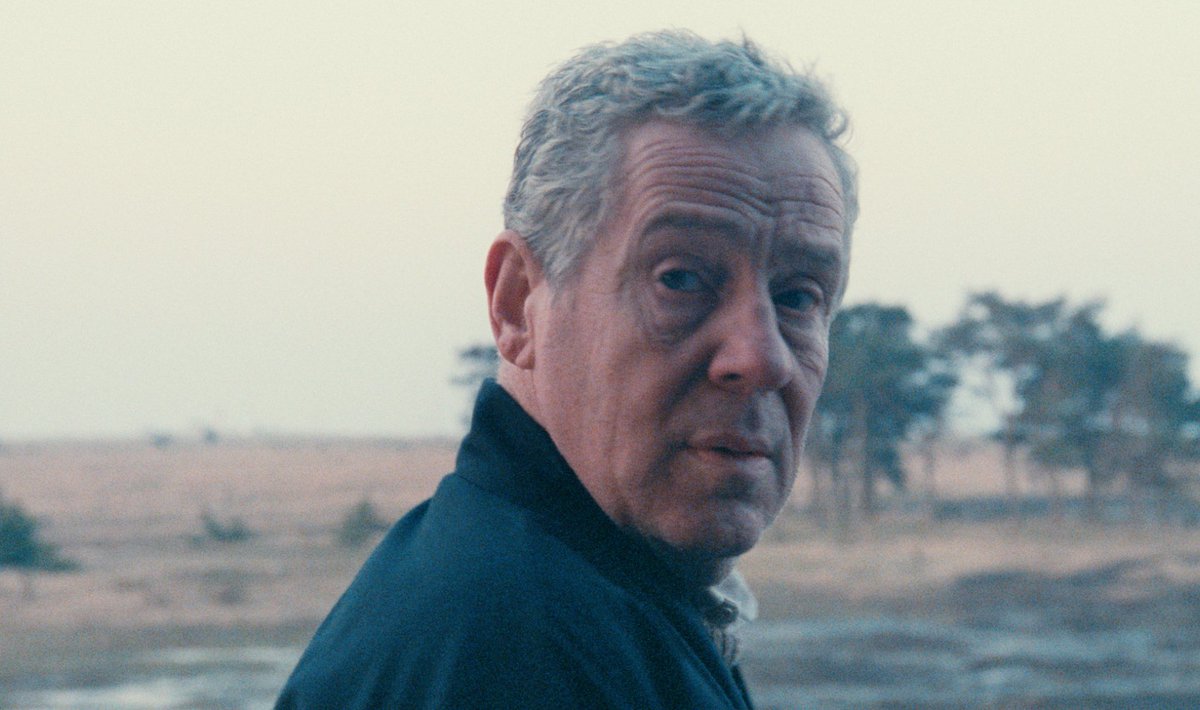
Achieving a complete understanding of life may be as impossible as it is alluring, but still we strive toward it. The hope of unraveling the mystery of existence is the ultimate temptation of both the noble and the restless mind. But though the final answers may seem eternally one step beyond us, the journey promises its own rewards.
What’s certain is that learning about life is inherently subjective. Any attempt to paint the entire picture of reality from a single viewpoint is sure to result in a mere self-portrait of the source, and not a complete representation of the whole. But with care an individual may understand one’s own life well enough, and therefore by studying enough subjective perspectives we might distill the fundamental truths needed to build a realistic worldview.
The poet William Blake once prompted us “to see a world in a grain of sand… and eternity in an hour.” Perhaps with the aid of these ten movies we can see our lives in a reel of film, and existence in two hours.
10. Sullivan’s Travels (1941) – Preston Sturges
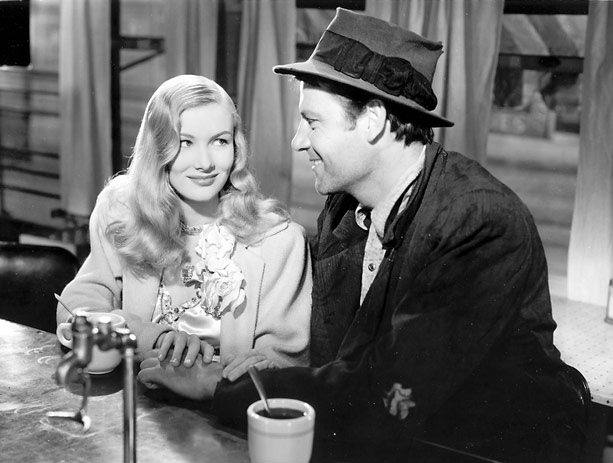
What it says about life: One’s experience of life is limited by one’s individual circumstances.
Humans are held captive by the limitations of the circumstances into which they are born. As powerful as the quality of empathy may be, it can never provide a completely authentic understanding of someone else’s life and struggles.
A rare gift is given to those who are forced to walk a mile in another’s shoes, and an enhanced worldview is promised to those who seek out the opportunity. Without such direct experience, one remains in danger of subjective prejudices.
Sullivan’s Travels tells the story of a movie director whose desire to make a serious, thoughtful film leads him to the realization that he knows little of human suffering. In order to make an authentic movie about hardship, he decides to adopt the clothes and lifestyle of a hobo.
Though his initial motivations include financial success, the high society citizen learns more about suffering during his travels in disguise than he ever dreamt he might. When he finds himself in serious trouble with the law, his connection to the downtrodden people around him becomes immediately profound. With the help of the beautiful Veronica Lake, our hero thoroughly learns how to walk a mile in another’s shoes before resuming his own identity.
9. Ordet (1955) – Carl Theodor Dreyer
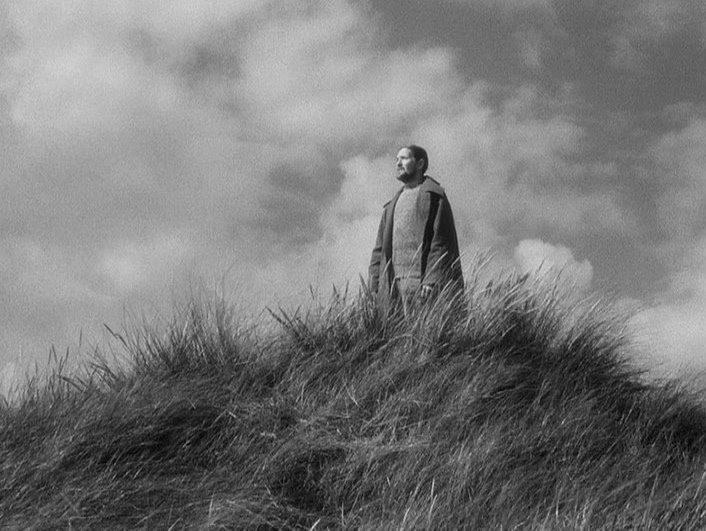
What it says about life: Life is mysterious, and belief in the metaphysical is a driving force for humanity.
Throughout history, humans have been haunted by the hope of a metaphysical or spiritual reality. The search for ultimate truth has inspired many to work for the benefit of others, while dogmatic faith has led to the slaughter of countless lives.
But it seems that the urge to seek a power outside of ourselves is now programmed into human consciousness, even for those who eventually deny that power’s existence. Whether faith is exercised, abused, or denied, it remains a powerful force which will continue to impact the destiny of humanity.
Faith is the focus of Ordet, and in this film it is a wildcard of as yet unknown power. This story highlights many aspects of faith: its pettiness and inflexibility, as Protestant factions within the town squabble and refuse to allow their children to marry; its strength, as the story’s patriarch faces unbelievable tragedy with stoicism and patience; and its simplicity, as the mad Johannes and his young niece form a strong bond based on their mutual and unquestioning belief.
Ordet even leaves room for those who view faith as superfluous, by painting its disbelieving character as a supremely good and moral man. But most of all, this film wants to teach its audience the power of faith as we suffer with the characters, desperately hoping that God has not forgotten them. By the end, we find ourselves rooting for a faith that flies in the face of reason, and even begin to wonder if what can be accomplished by faith is limited only by our lack of it.
8. Being There (1979) – Hal Ashby
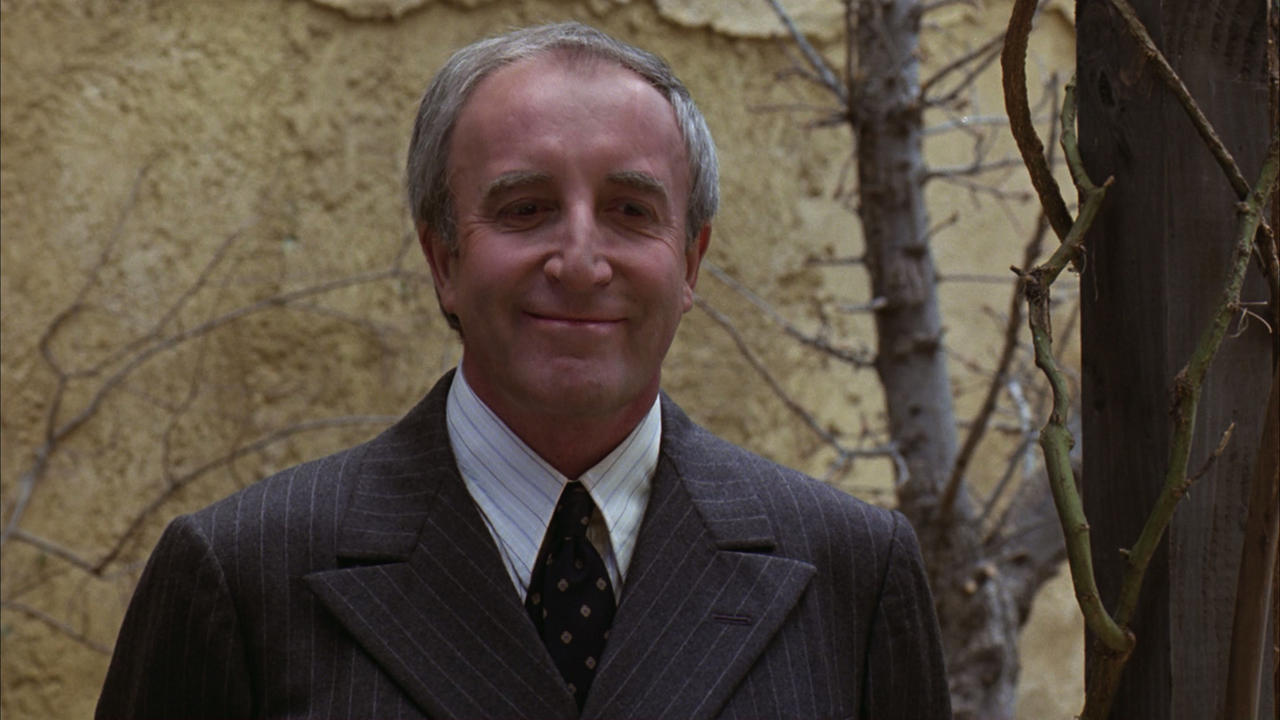
What it says about life: One’s experience of life can be as unique as one’s approach to it.
Just as society is an amplified projection of the natures of the individuals who compose it, so one’s personal life in many ways reflects the consciousness which experiences it. Thus arises the perennial search for inner peace which is assumed to bring order and happiness to the world of the one who achieves it.
It may be observed that the inwardly simple among us pass through largely untroubled waters in life, while those in inner turmoil carry a constant storm about them. Though one is subject to outer influences which constantly intersect with one’s own awareness, life almost magically seems to morph according to the state of one’s mind.
“Live in the moment” has become a hackneyed mantra, but like many clichés it stems from something poignant. Chance, the seemingly simple-minded protagonist of Being There, embodies this mantra. We assume that his living in the moment is a product of his simplicity rather than intent, but we’re never told for sure, and the film shows us that it doesn’t matter. A character who knows nothing about life other than what he has seen on television is the perfect canvas upon which to draw an uncomplicated personality.
When he enters the real world for the first time as a middle-aged man, his social ineptness and simple behavior draw a wide range of reactions. But the message of Being There is that Chance’s innocent approach to life is what makes it a blissful, and even magical, experience for him. “Life is a state of mind” sums up the philosophy of this charming story.
7. The Last Emperor (1987) – Bernardo Bertolucci
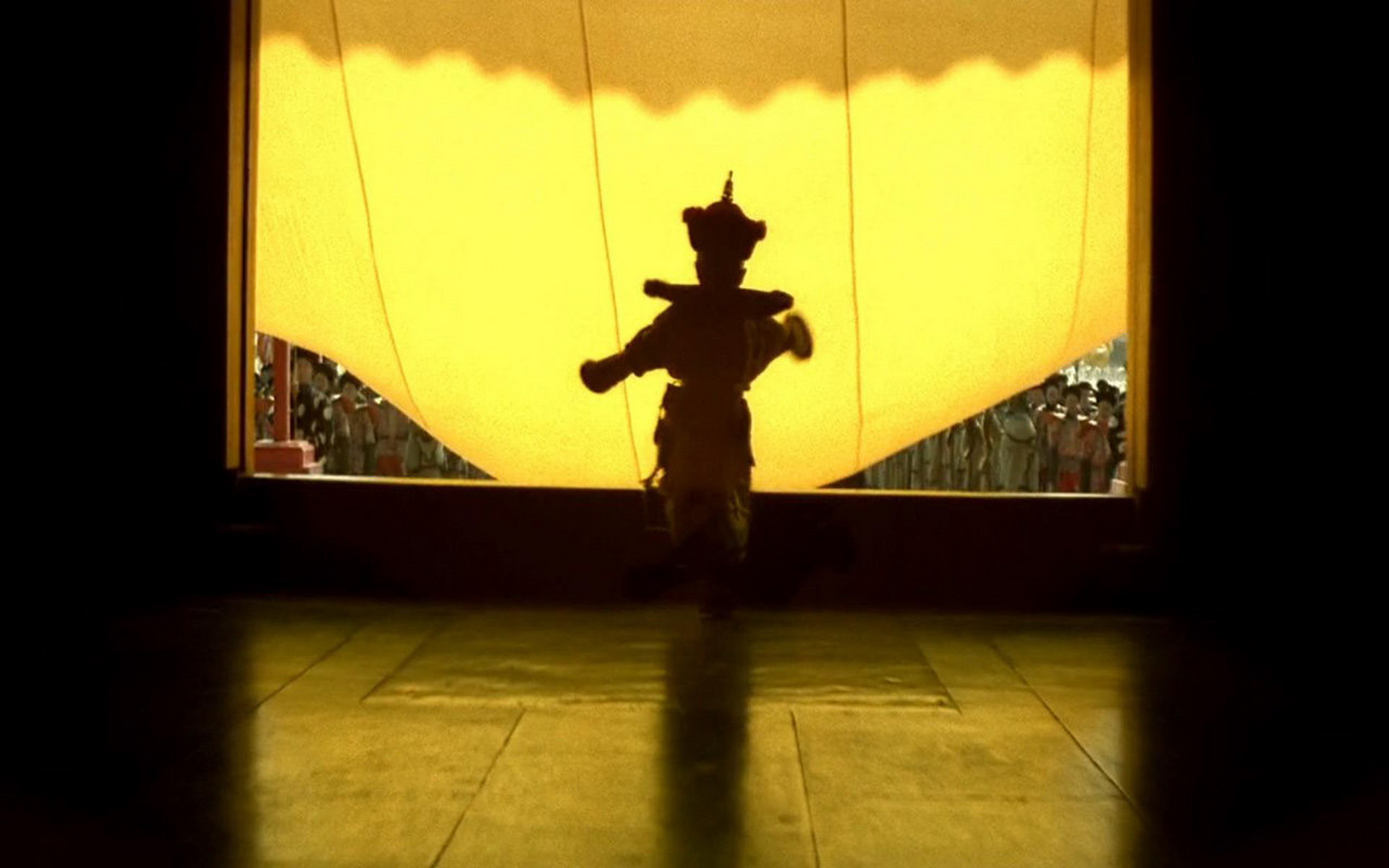
What it says about life: Life transcends transitory customs and cultures.
Empires rise and fall, and yet nations continue in their wake. Leaders ascend and are overthrown, and yet the masses continue to contend with the effects of power and greed. Customs and cultures which were once considered worth fighting and killing for eventually become outdated and mocked.
Religious persecution and torture have become an embarrassing chapter in the history of religions which still thrive today. Time always reveals the transitory nature of the ornaments of existence, and clarifies the essential quality of life itself, which remains thriving after the cultural rubble is cleared.
The Last Emperor focuses on the life and times of Puyi, whose career begins with his ascension to the position of Emperor at the age of two. When China becomes a republic, the young ruler’s life of power inside the Forbidden City is drastically disrupted; Puyi is given a Western-style education, but still relegated to life inside the palace. But as the political winds continue to shift, he soon finds himself exiled from the Forbidden City, then a prisoner of the Red Army, and finally a peasant gardener in his old age.
By framing the life of one influential individual within a tumultuous time in history, The Last Emperor dramatically showcases the shifting nature of any society. Even the most powerful figurehead may tomorrow become another anonymous cog in the wheel of progress, and Puyi’s life is a touching example.
6. The Human Condition (1959-1961) – Masaki Kobayashi
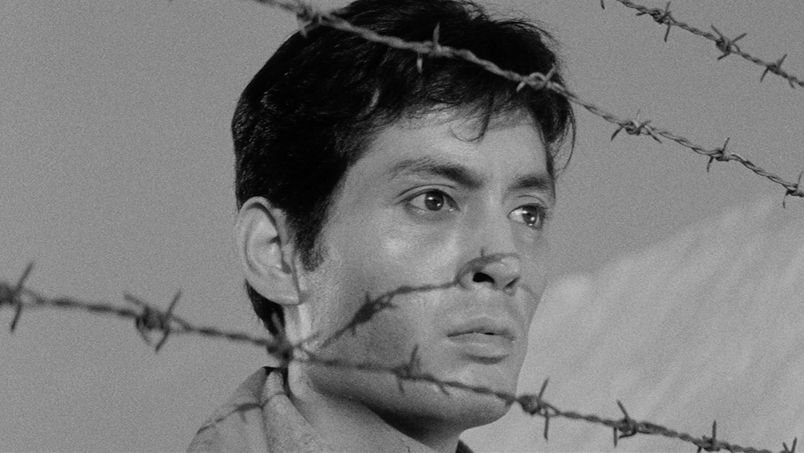
What it says about life: Rebellion against a societal structure is personally hazardous, while conformity is rewarded.
The rebellion of an individual against a societal structure has always been a perilous quest. In some cases a person may, by committing crimes of a universal nature, be cut off from the group which has been offended.
In other cases, the omission of an action required by a government or society brings the wrath of the masses upon the one who refuses to conform. This consequence is unaltered by the possibility that the action may be viewed as a crime in other cultures, or that it may offend the moral code of the individual. Conformity is crucial to the peace of a society, and though this year’s codified vice may become next year’s recreation, those who are out of step will struggle.
Kaji, the peaceful protagonist of the epic film trilogy The Human Condition, is a classic cinematic example of an individual’s struggle against a societal machine. As a Japanese pacifist navigating his career as a soldier during World War II, Kaji embodies the challenge of maintaining personal beliefs which are at odds with those of a government. His ideals of nonviolence and equality lead to ethical conflicts within himself and harsh punishments from the army.
The struggle of this humble rebel to reconcile his philosophical ideals with his honor and duty as a soldier echoes the universal paradox faced by all who aspire to live authentically and consistently. The Human Condition is both a timeless meditation on the fate of the individual who does not live in conformity, and an eternal ode to peace.